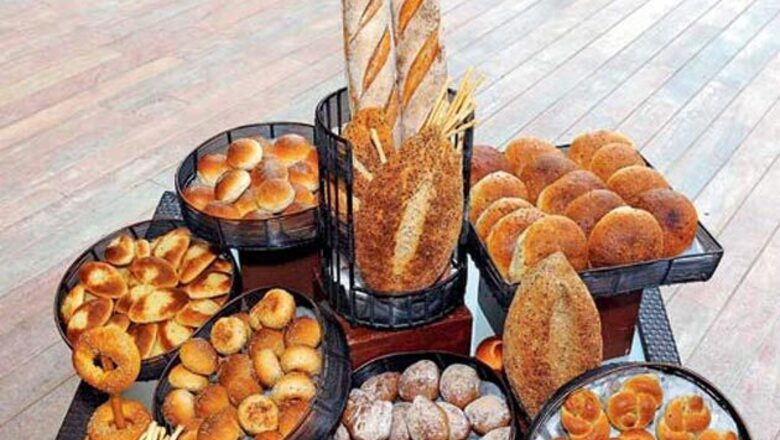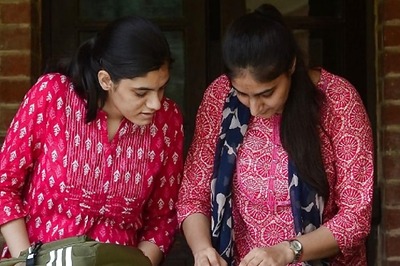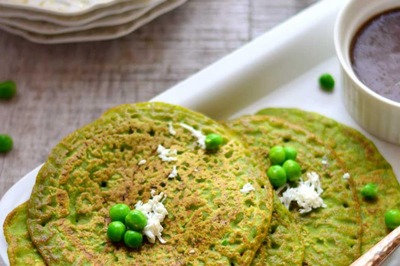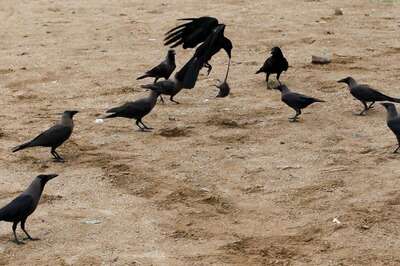
views
Mumbai: Soon, it may become laughable to call our ubiquitous vada pav a poor man’s burger, thanks to a sudden sharp rise in bread prices, starting on Friday. The price of packaged white bread and laadi pav has been notched up by a good Rs 2 — weight-watchers too have been dealt a body blow, with brown bread becoming dearer by Rs 4. The sudden hike is being attributed to soaring prices of key constituents of bread, such as wheat, flour, vanaspati and sugar.
This of course is crushing news for a city with an abiding love for all things crumby and stuffed in buns — your samosa pav, misal pav, sandwiches, and even the humble brun maska will now weigh heavier on your pocket than it does on your stomach. Bakes and cakes too pull on your purse strings — bakery items like cookies, biscuits, nankhatai, khari and toast will also witness a steep rise in prices shortly.
K P Irani, president of the India Bakers Association and bread manufacturer, confirmed the price rise and explained its source, saying, “The price of essential ingredients has gone up substantially in the last few weeks, and we have no option but to pass on the burden to our consumers. The price of a regular 400 gm loaf of white bread will increase by around Rs 2, and that of brown bread will go up by Rs 4, with effect from today.”
No crumb of comfort
Irani added that the cost of a 90-kg bag of wheat flour has gone up from Rs 1,400 to Rs 1,800, while the grease for the dough, vanaspati, has shot up from Rs 40 to Rs 83 per kg. Sugar, which was Rs 33 per kg even a few weeks ago, has gone up to Rs 43 per kg from today. Not just that, the civic body has hiked water charges for bakery units from Rs 18 to Rs 40 per 1,000 litres of water, and another 60 per cent is being levied as sewage tax.
There has also been a hike of Re 1 for per unit power used in bakeries, while the cost of printed wrappers for products has gone up from Rs 90 to Rs 130. All these factors — excluding other expenses including overheads, transport, labour — leaves the bakers with no option but to increase prices. This is ultimately affecting the hapless common man and his daily bread.
An office bearer of the National Association of Bakery Industry added that prices of laadi pav used for the beloved vada pav would also rise substantially. At present, each laadi pav weighs around 220 grams, but proportions may be shrunk as an alternative to a price rise. Some manufacturers may hike prices compromising on the weight.
Officialspeak
Speaking from Delhi, Ramesh Mago, president of the All India Bread Manufacturers Association, said, “This is the first time the prices of essential raw materials used in bakery industry have shot up suddenly, taking everyone by surprise. The price of wheat itself has gone up by 30 per cent in the last few weeks. Though the association has no role to play in the price hike, the manufacturers are left with no option but to burden consumers. The price rise will spread all over the country soon.”
Modern Foods, a division of Hindustan Unilever which manufactures bread, has already increased price of its multigrain, seven must and atta breads by Rs 3 from August 1. A senior official from the company said, “We have already increased the price of our premium breads and will shortly increase prices of our regular breads by Rs 2. Usually, the marginal price hike of raw materials, diesel and other overheads are not forwarded to customers. But this is an unexpected situation.”
Bakers’ blues
A chef at a star hotel near the international airport said, “We usually bake all sort of breads in our kitchens — soft and hard rolls, bagels zopf, pita bread, French baguettes, rye bread, focaccia, and bread sticks. Since the prices of raw materials have gone up, we have passed on the burden to our customers. The prices on the menu have been increased by some percentage.”
The bakery industry is largely an unorganised one, with over 600 organised players and 1,500 unorganised players in the city of Mumbai. The industry consumes 15,000 bags of flour, 90 kg each, on a daily basis. Ever since the government stopped the wheat quota system for bakery units seven to eight years ago, compelling bakery units to directly purchase wheat from the open market. Some manufacturers that supply to different companies, institutions and hospitals, lamented that they would have to bear losses, being from raising prices prevented by annual contracts.
Swear by the branded desi burger? They too could soon cost more. Dheeraj Gupta, managing director of Jumbo King, said, “We have a yearly contract with bakery units for supply of bread, and our contract is due for renewal in September. They have already hinted about a price hike by 10 to 20 per cent. Also, prices of besan and potatoes have gone up, and we cannot compromise on quality, as our products are machine made. If prices continue to skyrocket, we will have to increase the price of our vada pavs by 20 per cent. At present we sell our basic vada pav for Rs 15.”
Venkatesh Iyer, managing director and CEO of Goli Vada Pav, said, “For us, price hike is only the last resort. Firstly we will discuss with vendors and our management and will pass on the hike only if there is no other option.”
Rs 18: New price of white bread loaf
Rs 26: New price of brown bread loaf
Voices
Increase in price of essential commodities is definitely not a good sign for the nation as a whole and the common man in particular. Not just vada pav, I will have to shell out extra money for my favourite sandwiches.
— Madhuri Thadani (39), housewife, Peddar Road
We can’t help it, everything is becoming expensive these days. Only a few can afford, while a majority can’t. I blame politicians — they are getting richer by the day, while we are getting poorer.
— Winston D’Souza, manager, Bandra (West)




















Comments
0 comment